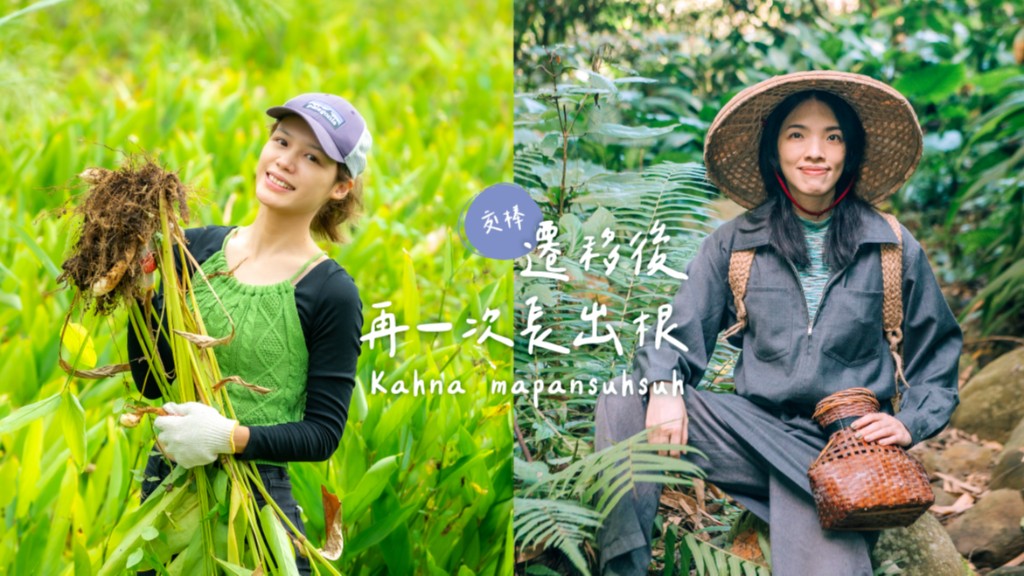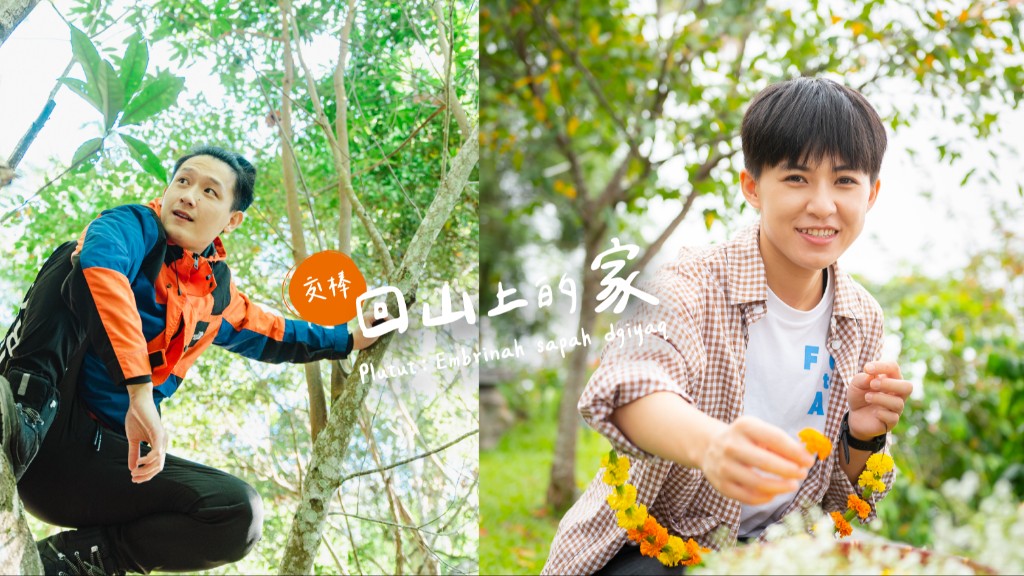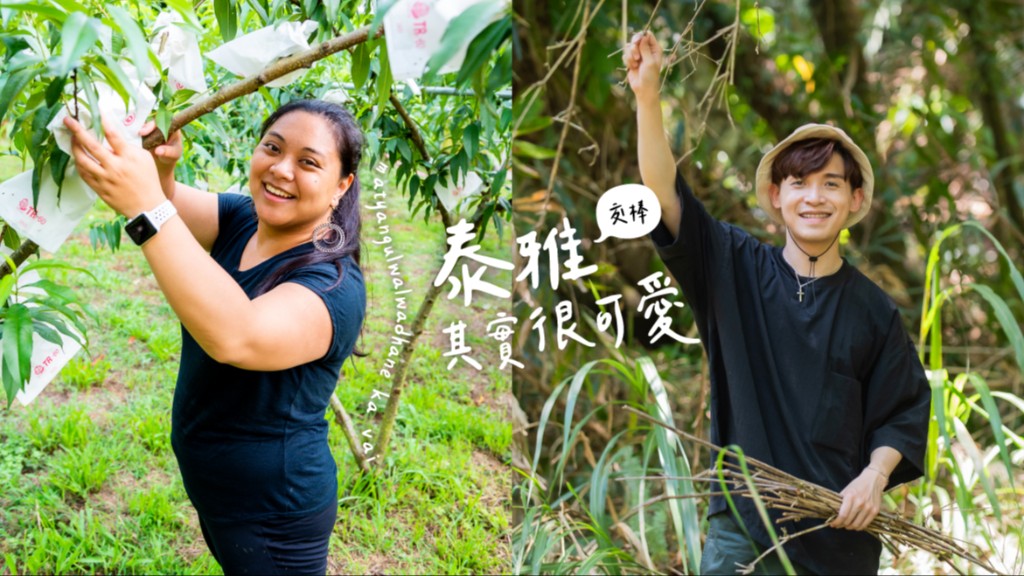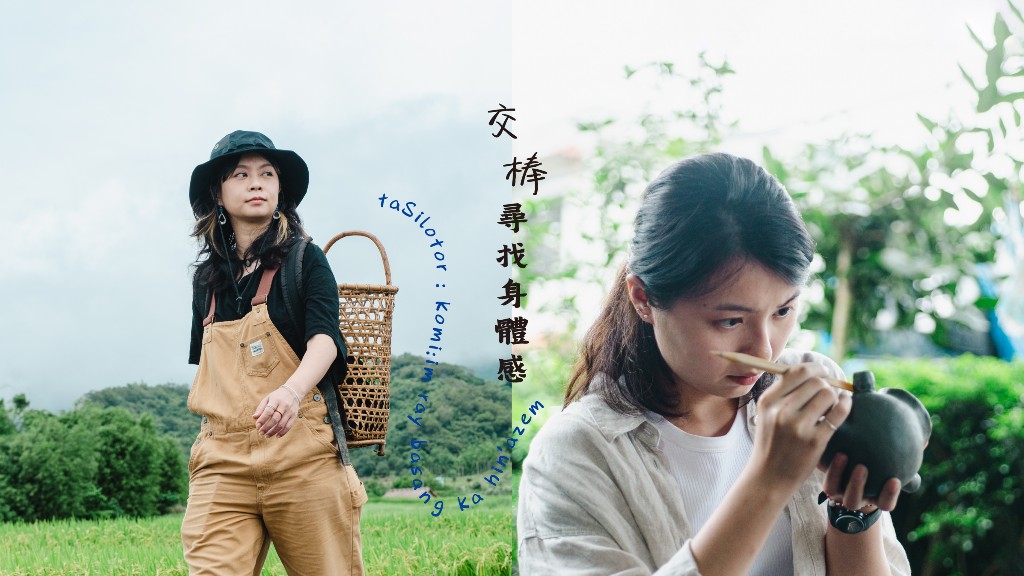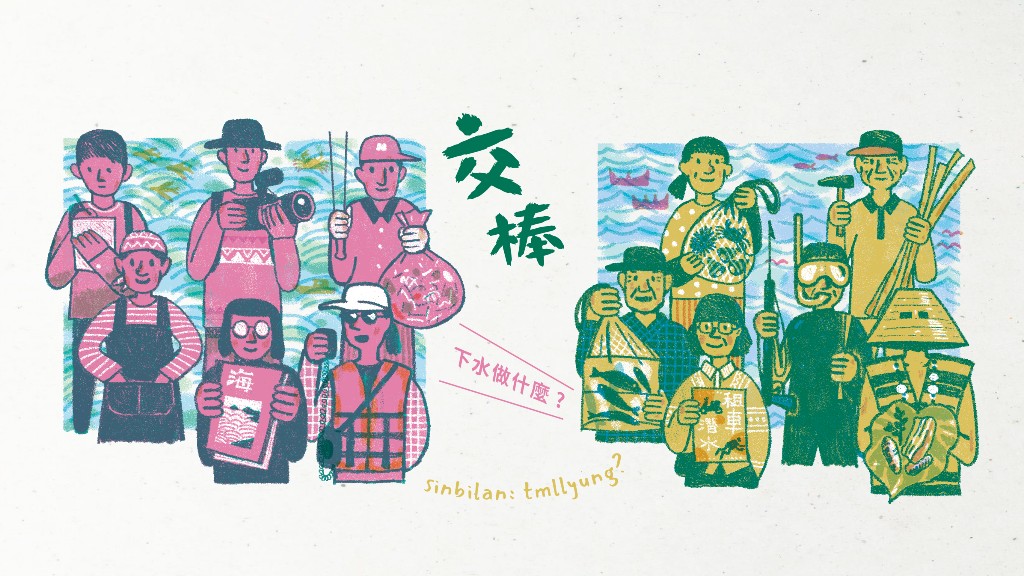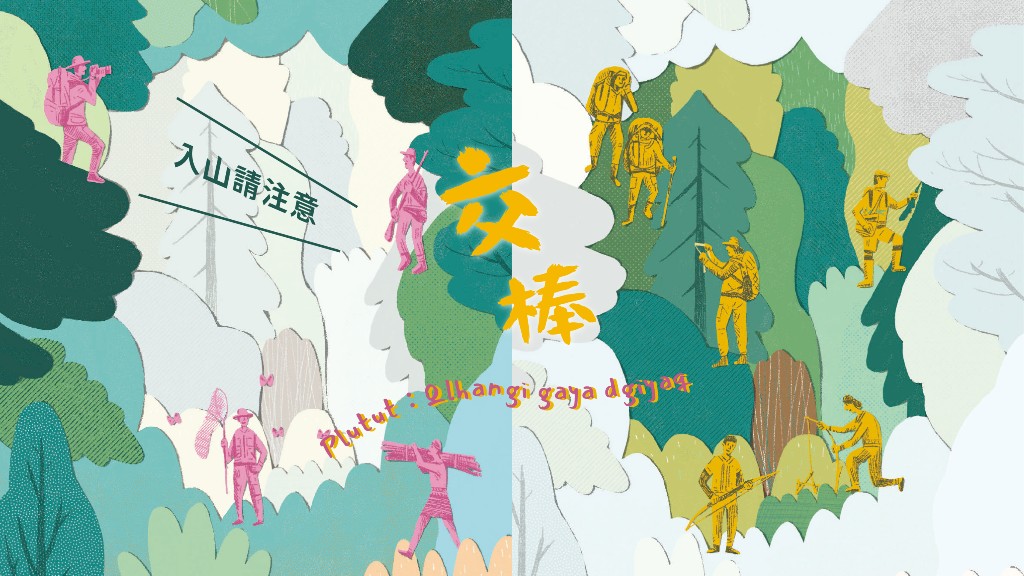How did you feel about working in the peach orchard today?
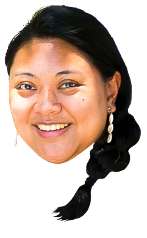
This is probably the first and only time in my life to set a trap. Rukai women don't really take part in hunting, plus the fact that we grew up in the city and being kids, elders felt it extremely dangerous to take us to the fields in the mountains. Traps are handcrafts, and I am really bad at weaving. The only Rukai embroidery I am capable of is the most basic cross-stitch, so when Jumu was saying "L-shaped", I was wondering to myself the whole time, "where is that L-shape?"
But I have no problem catching nocturnal moths, I'm not afraid of animals. When I heard Lahuy say that some elders make their rounds from 8 pm to 12 am, I was, on the one hand, filled with respect for how hardworking the farmers are, and on the other, felt how it really reflects the different characters between our two generations. As for the harvest, I am deeply impressed with how quickly Lahuy can identify which peaches have gone bad and which ones have not, he hardly needed to remove the bags to see, but I spent a lot of time peeking into the bags. Finally, at the packing station, I was really worried about falling behind schedule. Everyone was so experienced, but I kept on ripping the protection sleeves, once even ripped about 4 or 5 in a row, and only getting the hang of it after a few dozens of peaches. After today, I understood that peach farming required great attention. I had thought it was pure labor, but there are actually a lot of details to attend to.
What struck you the most having spent the last three days at Smangus?
 With the joint-ownership and sharing system at Smangus, everybody works very hard. Unlike us who work for paychecks in the city, sometimes we slack off, but people here work with a sense of mission, and together as one, they make sure everything is done well. Also, with the rotating shifts, people get to try everything and need to know how everything is done. From the reception desk to farming, from the front and back of houses to housekeeping, the learning is extensive and that is why many can work independently at a young age. I believe that this pattern contributes greatly to the training and empowering of people and the future generation.
With the joint-ownership and sharing system at Smangus, everybody works very hard. Unlike us who work for paychecks in the city, sometimes we slack off, but people here work with a sense of mission, and together as one, they make sure everything is done well. Also, with the rotating shifts, people get to try everything and need to know how everything is done. From the reception desk to farming, from the front and back of houses to housekeeping, the learning is extensive and that is why many can work independently at a young age. I believe that this pattern contributes greatly to the training and empowering of people and the future generation.
Coming to the end of this journey, is there anything you would like to share with other urban indigenous youths?
 During the process, I grew envious of the young people at Smangus for being able to grow up in a familiar environment. As an urban indigenous person, it was natural to feel out of place when first returning to the indigenous community, just as one would joining a new group. But it's more important to move past the awkwardness and learn to get things done well. Put your head down and don't assume too much, more people will get to know you this way and you can find your place in the group quicker!
During the process, I grew envious of the young people at Smangus for being able to grow up in a familiar environment. As an urban indigenous person, it was natural to feel out of place when first returning to the indigenous community, just as one would joining a new group. But it's more important to move past the awkwardness and learn to get things done well. Put your head down and don't assume too much, more people will get to know you this way and you can find your place in the group quicker!
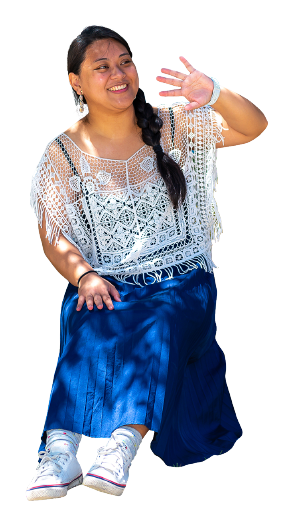
Waving goodbye with peaches in our hands gifted by the Smangus people, we drove down the mountains. Looking out the window, I recall similar scenes leaving my own community in the past, the car filled with vegetables and meat grown and bred by the elders, and grandpa and grandma standing outside our home. We would roll down our windows and cry out goodbye to them. I would look through the rear windshield at the grass, the trees, and the sky of our community quickly fading away, and grandpa and grandma becoming smaller and smaller, further and further away. "Our people will ultimately return to the community, our younger ones will eventually come back, so we cannot lose our land." I recall what traditional leader Masay said to me one night.
Originally, according to regulations, our people had to forfeit their rights to the lands of our indigenous community in the mountains before relocating to permanent housing. Therefore, even though the road leading out of Cekele Adiri is dangerously unstable, not many are willing to relocate. How can we just leave the lands our ancestors resided in for hundreds of years due to some external reasons? No one could bear to, therefore, after much protest and insistence, they were able to keep their lands. Every time we return to the mountains for tomb sweeping, mom and a few other elders would walk around a little more to take the view in, reluctant to leave. Our lands may be tattered nowadays, but it is still as beautiful and important to my family.
I visited Smangus at the end of July, tourists flocked there to escape the heat of the summer, and people in the community explained that being short-staffed, they do not get time off during the summer holidays. They said it so casually that I find it hard to comprehend, how can they go on for two months with no break? For someone who has always worked in the city, I feel suffocated just hearing about it.
I spent three days living the life of local Smangus, working at different stations each day, housekeeping, the restaurant and kitchen, harvesting peaches, packing and boxing the fruit... I see them exhausted yet still working in sync, cheering each other on and keeping one another company through the chattering, even though they are sweating and covered in dust, their eyes are still glowing. They are not afraid of laboring away, because each time they give, they are giving for their own people, their own community, and their own future generations.
Recalling my days in my own community, I feel like there is nothing I can give in return for the nurturing of my elders and homeland. But I guess they never expected us to give back, they just wanted us to remember and always be humble and grateful for everything nature has given us and cherish it with all our hearts.
As we drove further and further away, I recalled what traditional leader Masay said to me as we parted ways, "Muni, you are an indigenous child, so it's up to your generation now." The sound of him playing the mouth harp hums in my mind.
2022.07.27


